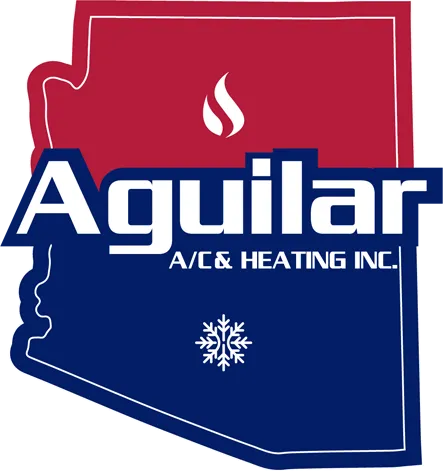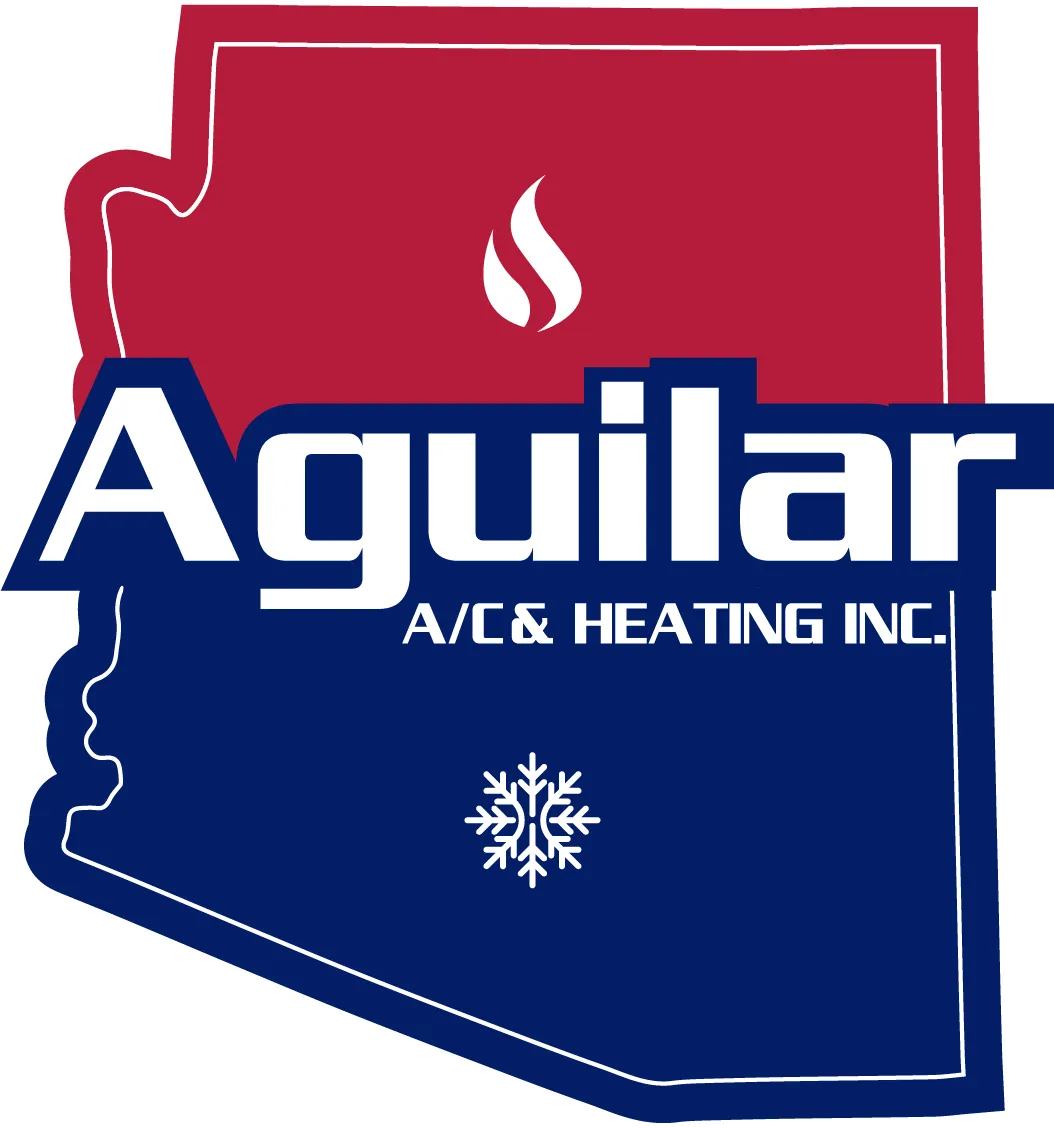Aguilar A/C & Heating
Blog

How to Extend Your AC Lifespan in Arizona’s Intense Heat
Imagine it’s late July in Phoenix. The temperature outside is 110 °F, the sun beats down relentlessly, and your air conditioner is working nonstop just to keep your home livable. In a climate like this, your AC isn’t just a luxury — it’s essential. But heavy use in extreme heat also means more stress, faster wear, and a shorter lifespan if you don’t take care of it.
This guide explains why Arizona’s climate is so hard on air conditioners and gives you practical, actionable steps to help your system last as long as possible. You’ll also find answers to common questions and clear signs to watch for so you can avoid expensive breakdowns.
Why Arizona Heat Shortens AC Lifespan
Before learning how to protect your system, it’s helpful to understand what works against it in our environment.
Constant, Heavy Use – Air conditioners in Arizona run for months with few breaks, which accelerates wear and tear.
Extreme Outdoor Temperatures – The hotter it is outside, the harder your AC has to work to move heat out of your home. This puts extra strain on the compressor and other components.
Dust and Debris – Dust storms and dry air mean filters, coils, and ducts clog faster, restricting airflow and forcing the system to work harder.
Thermal Stress on Components – Electrical parts, capacitors, and wiring degrade faster under constant high heat and long run times.
Poor Sizing or Installation – A system that is too small runs nonstop; one that is too big cycles on and off too frequently. Both shorten system life if not installed and balanced correctly.
Because of these factors, AC units in Arizona often last closer to 8–12 years if they aren’t maintained well — but with consistent care and proper installation, many systems can last 12–15 years or longer.
How to Extend Your AC Lifespan
The good news is that you can dramatically improve your AC’s lifespan with some consistent habits and a little planning. Here are the most important steps.
Schedule Professional Maintenance
At least once a year — ideally twice — have an HVAC technician inspect, clean, and tune up your system. Professional service can catch small issues before they become big problems, check refrigerant levels, and ensure your system is running efficiently.
Change Your Air Filters Regularly
Clean filters mean proper airflow and less strain on the blower motor. In Phoenix, with all the dust and pollen, check your filters monthly and replace them as needed — sometimes every 30 days during peak summer.
Keep the Outdoor Unit Clear
Your condenser needs good airflow to release heat. Remove leaves, weeds, and debris, and gently rinse off the coils with a garden hose. Keep shrubs or fences at least a couple of feet away from the unit.
Seal and Insulate Ductwork
Leaky ducts waste cooled air, forcing your AC to run longer. Have a professional check for leaks, seal problem areas, and add insulation where needed.
Use a Smart Thermostat
A programmable thermostat helps reduce unnecessary runtime. Raise the temperature a few degrees when you’re away but avoid shutting the system off entirely during extreme heat.
Provide Shade for the Condenser
Placing the unit in partial shade or using a shade structure can lower the temperature around it and help it run more efficiently. Just make sure there’s still plenty of airflow.
Avoid Extreme Thermostat Changes
Dropping the thermostat too low to cool the house faster only forces the AC to run longer cycles. Instead, set a comfortable target temperature and maintain it.
Watch for Warning Signs
Unusual noises, uneven cooling, or higher utility bills can be early warnings that something is wrong. Addressing these issues promptly helps prevent bigger, more expensive repairs.
Consider Upgrading When Needed
If your AC is over a decade old, breaks down often, or struggles to cool your home, a high-efficiency replacement could save you money and stress over time.
Enroll in a Maintenance Plan
Many local HVAC companies offer service plans that include scheduled tune-ups, reminders, and priority service. This is one of the easiest ways to stay on top of maintenance.
FAQs
How long should an AC last in Phoenix?
A well-maintained AC can last 12–15 years, but many systems only make it 8–12 years if not serviced regularly.How often should I have my AC serviced?
At least once a year, but ideally twice — once before summer and once after the cooling season ends.Is it okay to shade my outdoor AC unit?
Yes, as long as you don’t block airflow. Shade can help the unit run cooler and more efficiently.Should I turn off the AC when I’m gone for the day?
No, don’t turn it off completely during extreme heat. Instead, raise the temperature a few degrees to reduce runtime while avoiding strain when restarting.What maintenance can I do myself?
You can change filters, clean around the outdoor unit, and check vents for obstructions. Leave electrical, refrigerant, and internal component checks to professionals.
Conclusion
Arizona’s heat is tough on air conditioners, but with the right habits, you can help your system last much longer. Consistent maintenance, smart thermostat settings, and quick responses to warning signs all add years to your AC’s life and save money in the long run.
If it’s been a while since your last tune-up or your system is struggling, schedule a maintenance visit with a trusted Phoenix HVAC contractor. A little attention now can keep you cool all summer and prevent costly emergencies later.
Our Services
Helpful Links
Contact Information
Phoenix, AZ 85042
Business Hours
Mon - Fri: 8:00 am - 4:30 pm
Sat & Sun: Closed
© 2025 All Rights Reserved | Aguilar A/C & Heating

